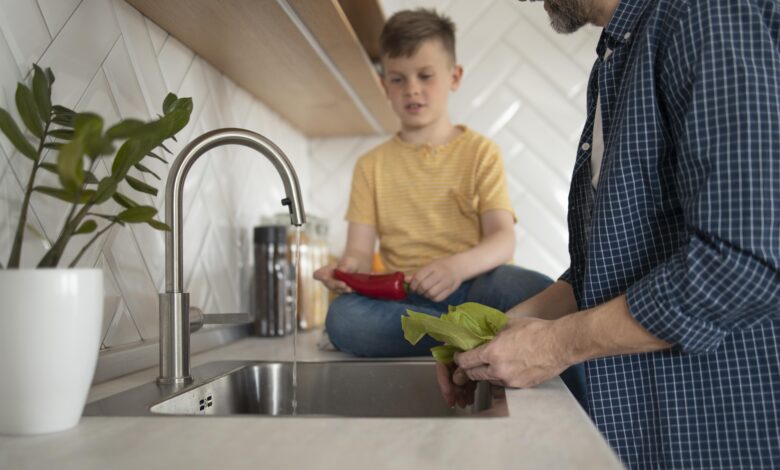How to Save Water with Efficient Plumbing Solutions

Identifying leaks and inefficiencies
One of the most significant sources of water waste in homes comes from unnoticed leaks and inefficient fixtures. A dripping faucet or running toilet may seem minor, but over time, these problems can waste thousands of gallons of water each year. Plumbers often start by inspecting the system for hidden leaks in pipes, fittings, or outdoor irrigation lines, since these are less obvious but just as costly. Replacing worn washers, tightening connections, and upgrading outdated fixtures are straightforward solutions that immediately reduce waste. For households that suspect larger problems, consulting a professional is key, and many turn to a plumber in Tulsa when they want guidance on how to manage persistent leaks. By resolving these issues quickly, families not only save money but also help prevent structural damage caused by excess moisture.
Upgrading fixtures and appliances
Modern plumbing technology has made it easier for households to save water without reducing convenience. Low-flow showerheads, dual-flush toilets, and aerated faucets are designed to minimize water use while still providing strong performance. For example, newer toilets use far less water per flush than older models, resulting in significant savings over the course of a year. Appliances such as dishwashers and washing machines also come with water-efficient features that align with modern conservation goals. Upgrading these systems is an investment that pays off through lower bills and reduced strain on local water supplies. Plumbing professionals can guide homeowners through these upgrades, recommending solutions that work with existing infrastructure while delivering meaningful efficiency improvements. The combined impact of these small changes adds up to substantial water savings across an entire household.
Smart technology for conservation
Another practical approach to water efficiency involves innovative technology that monitors and controls plumbing use. Leak detection systems, for example, can alert homeowners to problems in real time, even shutting off the supply automatically to prevent waste and damage. Intelligent irrigation systems adjust watering schedules based on weather forecasts and soil moisture levels, ensuring that lawns and gardens only receive the water they actually need. These technologies provide homeowners with greater control, enabling them to track usage through mobile apps and identify areas where adjustments can be made. Over time, the data collected by these systems provides insight into habits and patterns that influence consumption. By incorporating innovative solutions into their plumbing systems, families can align convenience with responsibility, achieving long-term reductions in water waste while making day-to-day management more straightforward and more reliable.
Importance of professional maintenance
Even the most advanced plumbing systems require regular maintenance to operate efficiently. Over time, mineral buildup, worn seals, and aging components can compromise performance, leading to waste that often goes unnoticed. Professional plumbers play a crucial role in maintaining systems in top condition by cleaning drains, inspecting water heaters, and ensuring that valves and fixtures function properly. Routine inspections enable problems to be identified before they become costly or damaging, thereby preserving both efficiency and safety. Additionally, maintenance helps extend the lifespan of fixtures and appliances, maximizing the return on investment for homeowners who have upgraded to more efficient models. By scheduling regular service, families can strike a balance between comfort and conservation, ensuring that water-saving systems continue to perform optimally.
Long-term benefits of efficient plumbing
Efficient plumbing solutions offer benefits that extend beyond immediate water savings. Lower utility bills create ongoing financial relief, while reduced demand on municipal water supplies supports sustainability at a community level. Environmentally conscious households also gain the satisfaction of knowing they are doing their part to conserve a limited resource. On a broader scale, widespread adoption of water-efficient systems can reduce strain on infrastructure, delay the need for costly expansions, and contribute to resilience against droughts or shortages. For homeowners, efficient plumbing represents a practical and responsible way to protect both their household budget and the environment. As technology and practices continue to evolve, the opportunities for saving water through plumbing improvements will only expand, making it an essential part of sustainable living.
Saving water at home begins with understanding the central role plumbing systems play in daily use. By addressing leaks, upgrading fixtures, embracing innovative technology, and committing to regular maintenance, households can significantly reduce waste. These steps not only lower monthly bills but also contribute to broader environmental goals, creating benefits that reach beyond individual properties. Efficient plumbing solutions ensure that homes remain comfortable and functional while conserving one of the planet’s most vital resources. With the right strategies, families can enjoy both immediate savings and long-term value, proving that water efficiency is both practical and necessary for the future.



